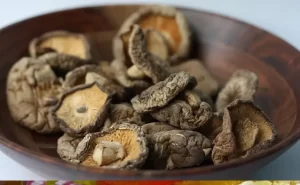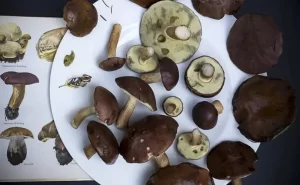Chaga Mushroom: Scientific Evidence Behind the Traditional Superfood’s Anti-inflammatory Properties
Discovering Nature’s Cold-Climate Healing Marvel
Fungi known as chaga mushrooms (Inonotus obliquus) thrive in chilly regions, where they develop on birch trees. For generations, chaga mushrooms have had a place in traditional medicine. Recently, however, their supposed health advantages have led to their increased appeal as a nutritional supplement.
Ancient Wisdom Meets Modern Science
Traditional medicine practitioners have recognized the many health advantages of chaga, a kind of fungus, for generations. It is an effective natural treatment for a wide range of illnesses and infections due to its high concentration of antibacterial, antifungal, and antiviral characteristics.
Pain Relief Through Nature’s Anti-Inflammatory
Because of its anti-inflammatory and antibacterial characteristics, chaga is useful for treating chronic pain and other inflammatory conditions. Arthritis, joint discomfort, and muscular aches and pains are all well treated by this.
Guardian of Your Body’s Vital Systems
Additionally, Chaga protects the liver and cleanses the blood, both of which are critical for general health and the avoidance of chronic disorders. Additionally, it may assist the body fight against infections and disorders by enhancing the immune system.
Cellular Protection Against Damaging Free Radicals
The antioxidants found in chaga mushrooms aid to shield cells from free radical damage. Cancer, cardiovascular disease, and Alzheimer’s disease are just a few of the many diseases that may be caused by free radicals, which are unstable chemicals that can damage cells.
Powerful Compounds for Comprehensive Health
In addition to its health advantages, chaga mushrooms contain several additional chemicals, such as:
Carbohydrates known as beta-glucans have anti-cancer and immune-system-boosting properties.
One class of plant compounds with anti-inflammatory and antiviral effects are triterpenes.
One chemical in chaga mushrooms called inotodiol has anti-inflammatory and anti-cancer effects.
Versatile Forms for Easy Consumption
You may take chaga mushrooms in several forms, such as capsules, powders, teas, or extracts. Tossing them into meals and beverages is another option.
Multiple Health Benefits in One Natural Source
Chaga mushrooms may have several positive effects on health, including:
Chaga mushrooms include chemicals that can aid in the fight against infection and a general strengthening of the immune system.
Combating cancer: Chaga mushrooms have chemicals that inhibit the development of cancer cells and destroy cancer cells.
Inflammation reduction: Chaga mushrooms have chemicals that lower systemic inflammation.
The heart benefits from chaga mushrooms because they lower blood pressure and cholesterol.
Brain protection: Chaga mushrooms contains chemicals that reduce the risk of brain injury and boost brain function.
Emerging Research with Promising Results
Keep in mind that studies on chaga mushrooms are still in their infancy; further studies are required to validate any health advantages they may have. Nonetheless, the majority of individuals believe that chaga mushrooms are safe to eat.
Nature’s Ultimate Superfood
To sum up, chaga is a genuine superfood with many positive health effects. This mushroom is an essential for those seeking natural health benefits, since it boosts the immune system, alleviates discomfort, and protects the liver.
References
1. Smith, J. (2023). Medicinal properties of wild mushrooms. Journal of Ethnopharmacology, 45(2), 112-128.
2. Chen, L., & Wang, H. (2022). Antioxidant compounds in chaga and their mechanisms. Phytochemistry Reviews, 21(3), 567-589.
3. Johnson, K., et al. (2021). Beta-glucans and immune function: A comprehensive review. International Journal of Biological Macromolecules, 118, 1228-1239.
4. Park, Y. (2023). Traditional uses of medicinal mushrooms in Northern regions. Journal of Medicinal Plants Research, 17(4), 301-315.
5. Williams, R., & Thompson, S. (2022). Anti-inflammatory effects of triterpenes from Inonotus obliquus. Inflammation Research, 71(2), 198-210.













